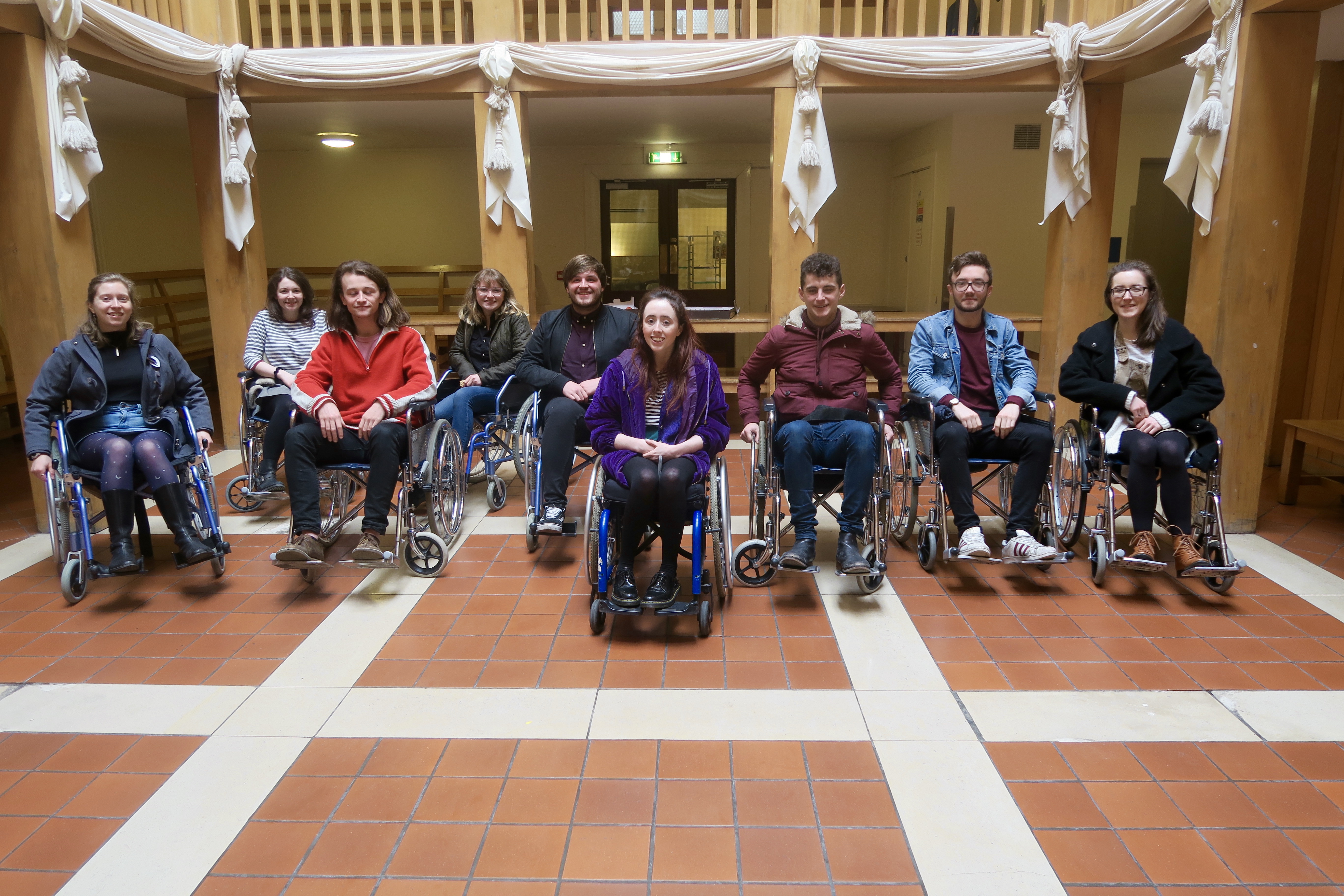On Wednesday morning, nine curious and hopeful students made their way over to the Atrium where their newest challenge awaited them: the wheelchair. The 24-hour wheelchair challenge, organised by Niamh Herbert, returned for its second year to inform students on “what it is like to be a wheelchair user in a completely inaccessible campus”.
From 11am, the students would find themselves suddenly noticing how cobbly those cobble stones really are and just how far away the Lecky is from the Berkeley. Buildings unexpectedly became out of bounds, tutorials were re-arranged and lectures were missed as the nine volunteers became acquainted with their new wheelchairs.
Talking to a few of the volunteers, the experience seems to have been an enlightening one overall, albeit with both its triumphs and tribulations. Alannah Owens reflected on how some of the most ephemeral tasks suddenly became not only prolonged but quite challenging. “Molehills become mountains”, she reflected. Nevertheless, Owens was pleasantly surprised by the willingness of people to help her out, with people opening doors and friends pushing her when necessary. Owens found the Beatles’ “I get by with a little help from my friends” ringing through her ears as she navigated her way through the hoops and hurdles of wheelchair-life on campus.
Fellow volunteer Jack Counihan took another perspective on the help offered by people: “I know that people being too helpful sounds odd, but it did get a little ridiculous.” While Counihan was undeniably grateful to those willing to ease his load, he imagined that for regular wheelchair users “trying to establish independence must be difficult when people are so intent on ‘helping’ you all the time”.
Counihan asserted that the help offered was desperately accepted but concluded that people generally are unaware as to how to actually treat wheelchair users – an issue that goes right to the core of the challenge.
Also central to the challenge, Herbert explained to The University Times, “is to inform the students of Trinity about accessibility issues around the campus”, and each of the participants were forced to physically engage with this dilemma on Wednesday.
There appears to have been quite a mixed response from the group, with participants such as Sadhbh Nuanán concluding that “the College just try to relocate people rather than fix the accessibility issues” while incoming Trinity College Dublin Students’ Union (TCDSU) Entertainments Officer David Flood rated College accessibility standards at an impressive “8.5/10” given the help offered not only by students but security staff as well.
Indeed, Flood argued that accessibility on campus caused little reason for concern compared to the myriad of other struggles that wheelchair users face everyday-from getting a take away coffee to pushing open doors.
Impressed with the lift in both Front Arch and up to Regent House, Flood found the campus to be relatively navigable and accommodating. Yet, Nuanán found herself changing seminar times to bypass inaccessible buildings, and worse still, lingering in places in order to avoid areas on campus she knew would be difficult to manage. Fellow volunteer Luke Newcombe agreed with Nuanán, reflecting on certain moments during the day as being both “frustrating” and “daunting”.
Owens straddled the middle line on this issue however. While she appreciated the measures already taken by the College to make campus more accessible, she affirmed that “it’s definitely not perfect”.
Grateful that she did not have any lectures in the Museum Building, and still recovering from what she recalled as the “embarrassment” caused by the small non-wheelchair friendly doors, Owens was not entirely disheartened by the experience. “It’s not perfect, but it’s so much better than the wider world!”, Owens reflected, echoing the thoughts of fellow volunteer Counihan who labelled the streets of Dublin as “an absolute nightmare” to negotiate.
Overall, the participants emerged from the 24 hours with an enlightened understanding of a wheelchair user’s experience on campus in Trinity, along with some aching arms. While accessibility remains a pervasive infringement on the mobility of wheelchair users on campus, there seems to be a general consensus among the participants that the help offered by students and staff at college can, to some extent, counter the problem posed by the inaccessibility of Trinity’s historic campus.
As Owens aptly put it: “Treating everyone as equals doesn’t have to mean ignoring everyone equally.”







